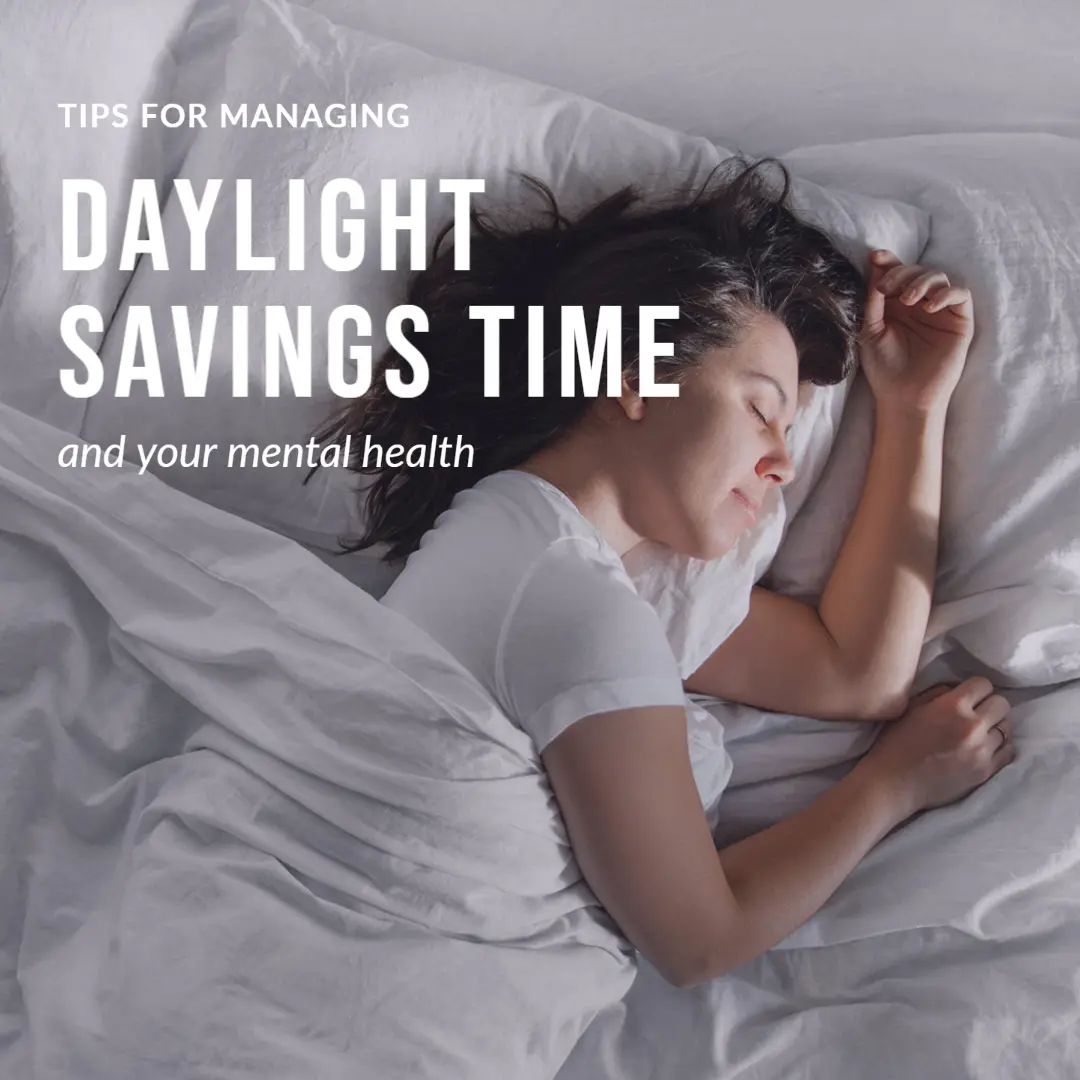Daylight Savings Time & Mental Health

Sleep plays an important role in both physical and mental health. Poor sleep can trigger symptoms of anxiety, depression and other mental health conditions. Each spring, it’s important to consider the impact that Daylight Savings Time can have on your quality of sleep. The time change in March results in darker mornings and more evening light, which can disrupt circadian rhythms and leave you feeling more tired in the morning and awake in the evenings. Disruptions to circadian rhythms can contribute to sleep loss, which in turn can affect mental health and mood disorders.
As our clocks “spring forward” this month, here are some tips for keeping your sleep schedule and mental wellness on track:
Tips For Improving Sleep & Adjusting Sleep Patterns with Daylight Savings
- Practice Good Sleep Hygiene
Establishing good habits can help you get the best possible sleep. Remove electronic devices, including TVs and smart phones, from your bedroom and limit screen time at least 30 minutes before bed. Also, avoid large meals, caffeine, and alcohol before bedtime and make sure your bedroom is quiet, dark and a comfortable temperature before laying down.
- Establish A Consistent Routine
Going to the bed at the same time each night and waking up at the same time each morning, including weekends, can help maintain your body’s circadian rhythm and help you fall asleep and wake up more easily. It can also help prevent certain sleep disorders, like insomnia
- Gradually Adjust Your Bedtime
Research shows that it can take 7-10 days to fully reset your sleep schedule. So when an adjustment is needed, for Daylight Savings Time for instance, experts recommend starting to wake up 15-20 minutes earlier each day for two to three days before the transition. This preparation can help you feel better adjusted when the time change takes place.
- Get Some Exercise
Being physically active during the day can help you fall asleep more easily at night. If possible, enjoy a walk, jog or bike ride outside, since sunlight during the day can help preserve your circadian rhythm and suppress the production of melatonin, a hormone that helps you sleep, until the evening.
Daylight Savings Time can affect sleep patterns, which can in turn create challenges for managing your overall health and mental wellness. There are ways to improve sleep patterns and cope, but if you or a loved one are still struggling with sleep disruptions that are affecting your mental health, please reach out to us for help and support. We are here to help with kindness and compassion, always.





